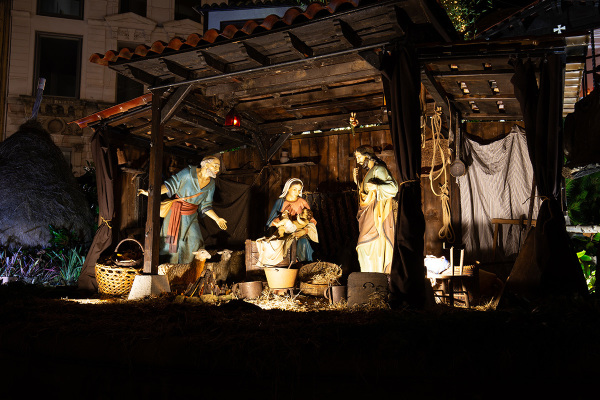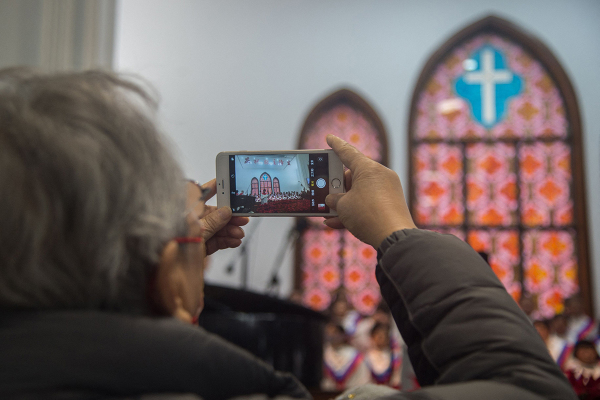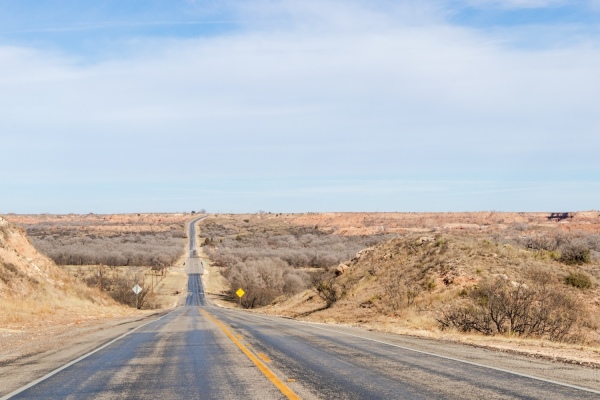Outrageous Vision: An Interview with Donal Miller about Global Pentecostalism
Donald E. Miller is Firestone Professor of Religion at the University of Southern California and executive director of the Center for Religion and Civic Culture, which he founded with John B. Orr in 1996. Miller has been teaching courses in the sociology of religion at USC since 1975. His book Pentecostalism and Social Transformation: A Global Analysis, written with Tetsuano Yamamori, will be published next year by the University of California Press. In addition, Miller is the author or coauthor of six previous books, including GenX Religion (Routledge, 2000), Reinventing American Protestantism: Christianity in the Next Millennium (University of California Press, 1997), Survivors: An Oral History of the Armenian Genocide (University of California Press, 1993), Homeless Families: The Struggle for Dignity (University of Illinois Press, 1993), Writing and Research in Religious Studies (Prentice Hall, 1992), and The Case for Liberal Christianity (Harper & Row, 1981). He has had major grants from the Lilly Endowment, the Pew Charitable Trusts, the James Irvine Foundation, the Haynes Foundation, the Louisville Institute, and Fieldstead Company. Timothy Sato spoke with Miller earlier this year.
In the early 1980s, you wrote a book called The Case for Liberal Christianity. You followed that up more than a decade later with Reinventing American Protestantism, in which you talked about "new paradigm churches"—Calvary Chapel, Hope Chapel, and the Vineyard. Is there a connection between those books and your current interest in Pentecostalism in the global context?
There is probably a progression that has occurred, which I haven't thought about all that much but which underlies this series of projects, going all the way back to Whittier, California, where I was born in 1946. My parents belonged to the Grace Brethren denomination—fairly conservative, very evangelical, also quite legalistic. That was the church context in which I grew up. Both of my parents were very active: my father was the superintendent of the Sunday school; my mother, for years and years, oversaw all of the younger children's programs. I used to escape going to church by helping her in the nursery program and I had a great love then, and still do now, for little children.
In my first semester of college, I hooked up with InterVarsity Christian Fellowship. To me that was like an incredible breath of fresh air, although in hindsight the group looks pretty conservative. Still, compared to what I had grown up in, it was without question a liberating experience. Here were people who were not particularly legalistic, who were thoughtful and even philosophical about what they did, and who had a global view, whereas I had grown up in a very small enclave.
Also, during that period, I became involved with a church—a Covenant Church—that had a fantastic pastor, Tom Erickson, who combined the social gospel with evangelical Christianity. It was a church located in downtown Los Angeles, deeply committed to serving the local Latino population. I became very involved in that church and never once looked back to my Grace Brethren upbringing.
But that fundamentalist upbringing had many virtues. I grew up in an extremely cohesive family, a family that was extremely loving and caring, and I think the church context nurtured that. While I certainly moved away philosophically from that early upbringing, I don't think I ever went through a period of rebellion against it. And that made it easier for me, many years later, to move into Pentecostalism as a field of study: I was entering a world that was very different to me, and yet at the same there were certain affinities to it, so that it wasn't all that strange.
What was the catalyst?
For some years, into the '80s, I had been teaching a course in which I required students to visit a church, or temple, or synagogue and write a detailed ethnography of it. It was a great way of staying in touch with what was happening in Southern California. I kept coming across student papers talking about Calvary Chapel, the Vineyard Christian Fellowship, Hope Chapel, and other non-denominational groups. The students were fascinated with these churches—their music, the informal dress of the congregations, the buildings where they worshipped, and so forth. I decided at some point that I ought to go and visit some of these churches. When I did, I ended up writing a grant proposal to the Lilly Endowment saying that I would like to study the Vineyard, Calvary, and Hope. So, in the early 1990s, I launched the study that became Reinventing American Protestantism.
For the next three years, every Sunday, I was in one of these neo-Pentecostal churches. I found them incredibly interesting, at a purely personal level. Sometimes I found things going on in them that I'd absolutely no categories to interpret. I clearly remember the first time I went to a Vineyard healing conference and saw people manifesting the Spirit, lying on the floor, shaking. That same conference ended with some of the early manifestations of what became known as "holy laughter." One of those evenings, I was so disoriented by what I was experiencing that I went out into the car and turned on a rock- and-roll station, which I normally wouldn't listen to, just to ground myself back in the profane world. What amazed me about these churches was the warmth of the people, their honesty and transparency, and the fact that undeniably, they were encountering some reality beyond themselves, which they called the Holy Spirit.
What did you make of that?
At that point I realized that when I wrote The Case for Liberal Christianity, what was missing was the experiential dimension. I had been trying to solve the dilemma of how you could be a contemporary person and a Christian at a purely cognitive level, a rational level. It seemed to me that these neo-Pentecostals had circumvented that whole process and went right to the experiential level. I didn't really have a framework for understanding that, and frankly I had never thought much about the Holy Spirit. It had never been part of my theology, but I was intrigued with it. So, in Reinventing American Protestantism, I tried to acknowledge the role of the experiential and drew heavily upon William James as a framework for interpreting that.
When I finished that book, in some ways I knew that I was on to something. I felt that I was able to name the elements of these congregations that were allowing them to grow so rapidly and were attracting people who came from non-church backgrounds. These congregations didn't meet in religious-looking buildings. Their clergy didn't look "religious." They didn't have all the trappings of traditional religion. Another element, as I've already suggested, is that there was a transparency to the members of these churches, an honesty, a directness of communication. In some ways, they cut through the superficiality of late-20th-century America. Clearly that was very attractive to many people—attractive to me as well.
Then there were certain organizational factors. They were very non-hierarchical. They truly did believe in the priesthood of all believers. People were not only having their needs met, but they were finding an avenue for service. That created a lively sense of community—again, something that many people yearned for.
My role as an author was translating a particular experience, which many liberal and mainline Christians would reject or marginalize. I think for the first time I realized that maybe my professional role as a scholar is to be a translator, not of texts, but of various people's experience. I felt that I was able to do that with integrity and in a way that people on both ends of the theological spectrum could understand.
After the book came out I happened to be at an event in Manila, where I had a conversation with Ted Yamamori, then president of the NGO, Food for the Hungry. He wondered if it would be possible to take the findings of Reinventing American Protestantism and see if they would apply at an international level. It just so happened that there was a funding source at that same table, Fieldstead and Company, and Steve Ferguson said, "Well, that's an intriguing idea. Maybe my foundation would be interested in funding this." So Ted and I, a few weeks later, wrote a grant proposal, which was funded, and we spent the next three and a half years traveling to almost 20 different countries studying fast-growing churches in the developing world—with the proviso that they must also be churches with active social ministries.
When we first set out our criteria, they had nothing to do with Pentecostalism. We wrote to about 350 people who we thought could recommend case studies for us, and about 85 percent of the suggestions that came back to us were Pentecostal churches. We decided fairly quickly to confine our research to Pentecostal churches.
Could you describe the project? What countries have you visited?
In Latin America, we have been in Argentina, Chile, Brazil, Venezuela, and Guatemala. In Africa, we have been in Egypt, Rwanda, Ethiopia, Kenya, Uganda, and South Africa. In Asia, we have been in India, Thailand, Macao, the Philippines, Hong Kong, and Singapore. Then we've been in Armenia and Poland.
Typically we have spent about a week to 10 days in each of those settings, always in a major city, focusing on two, sometimes three, congregations. To date, we've done more than 300 interviews and taken detailed field notes at every one of these church settings, always with attention to social ministries.
What are some of the emerging themes that you are discovering?
First, the Pentecostal churches that we have studied are characterized by outrageous vision. It's outrageous to the point that people set goals for themselves that are utterly unattainable by normal human standards—but the fact is, they oftentimes attain these goals. They are very much people with a vision who gain their commitment and power to carry out that commitment from a source other than themselves. Many of these churches are extremely large; their worship is often extremely dynamic.
Almost all of the large churches have coped with their growth by having cell groups or the equivalent, which then become the primary means of evangelism. They also function as the primary outlet for social ministries in many instances. And they provide the opportunity for people to learn leadership skills. The pastors function as trainers, as opposed to simply ministers, and they train people to do the work of ministry.
Is that similar to your previous findings?
There are definite similarities at the level of organizational structure between the churches in the United States that I studied previously and the global Pentecostal churches. One area which is dissimilar is that within congregations, there are numbers of people who have experienced upward social mobility. When you convert, you give up gambling, alcohol, womanizing, and other activities that were a cash drain. By saving that money, people then reinvest in their own businesses, or they invest in their children's education or their own education. Sometimes in a fairly short period of time, people really do start to experience upward social mobility. I don't think that that happens nearly to the same degree in the United States. But in developing countries, converted individuals have a competitive advantage over the rest of the population. In our research we've seen all sorts of examples of this upward social mobility.
Another area of difference is social ministries, where Pentecostal churches in the developing world are probably more innovative than their counterparts in the United States. For example, in Ethiopia we visited a Pentecostal church, relatively small, about 150 members, in a very poor neighborhood in a poor village. A woman physician from Kenya had set up a clinic there. After she did a health survey, she realized that 85 percent of the kids had worms or different kinds of infections and that she could be treating symptoms the rest of her life and nothing would really happen. Instead, she created a group of what she called "health evangelists," each of whom had a group of families whom they were to visit on a regular basis. They started talking with these families about sanitation. Over a period of a year or so, the entire village bought into the idea that they needed to do things differently related to their water, dealing with human waste, and so forth.
I recently talked to this woman. She did another survey and found that maybe 20 percent of the children continue to suffer from health problems, mostly treatable with antibiotics. But for the majority, chronic health problems have literally disappeared. All this because the program worked at a root level. She then took that same model and applied it to street children. Rather than simply creating an orphanage for street children, she asked the question, Why are children on the street? Well, one reason they are on the street is that their parents can't care for them. So she started working with the parents and has introduced to them microenterprise and other activities to allow them to keep these children rather than put them on the street or abandon them. That's highly innovative.
Is all of this work through the church?
It's all through the church. That's another important characteristic of these Pentecostal groups. In contrast to independent projects that are not associated with the church (even though they may be run by Christians), all the projects in this study are rooted in a local church, a congregation. It's quite different from what a lot of ngos do: they launch a project, but when they disappear or their funding dries up, the project also dries up. Because the projects we've been studying are all rooted in the church, they are not totally dependent on external funding, external staff, and so forth.
To leap to Los Angeles, I was intrigued in an interview I did at Templo Calvario when the pastor there said that they are learning from Pentecostals who are coming from Mexico and Central America, who seem to be more progressive in their social ministry. I think we are seeing a trend, globally, where Pentecostals in the developing world are not just waiting for the rapture to occur. As Christians, they are very much assuming their responsibility to care for people in their community. Particularly in the last decade—and I'd stress that a lot of this is in the last decade—many of these Pentecostal churches have understood that the gospel is holistic. It's to deal with the spirit as well as the body.
Some of the old forms of Pentecostalism that were imported in the developing world from the United States are at this moment in time extremely legalistic. They are serving the poor classes of society, but they aren't able to reach further. It's the indigenous Pentecostal churches that in many instances are the most vital and the most growing. They have often reached into the middle classes, and they are decidedly nonlegalistic. In order for the Pentecostal church to reach the middle class, they can't be against lipstick, jewelry, dancing, and so on—the kind of prohibitions that defined the older Pentecostalism. The middle class is not going to accept those legalistic criteria. So, if anything, what we are now beginning to witness is an almost reverse missionary movement where these vital indigenous Pentecostal churches are now sending missionaries to the West. I think that's an intriguing development in the history of missions.
What about the Pentecostal emphasis on spiritual gifts, healing, signs of power?
Pentecostalism connects strongly with animistic cultures in the developing world, where there's a pervasive belief in gods and sprits. Many of the people we have interviewed said that they became Christians because of some experience of healing where the Christian God was more powerful than the local gods—that was the turning point for their own conversion. It's impossible to minimize the importance of supernatural intervention—whether in healing or in other forms— in the global spread of Pentecostalism. It's something we've heard everyplace we've gone, including interviewing someone who claimed to have been raised from the dead in India. These things are always open to dispute and interpretation, but even as a good liberal Episcopalian, I have been compelled to acknowledge the possibility that not only are there supernatural healings that occur, but on occasion that there may be people who are raised from the dead.
Now having said that, there are also abuses that Pentecostal clergy have told us about. They don't believe it's appropriate, for example, to preach to people who have aids that if they only believe, their aids will go away. That's not to say that some people are not healed of aids—some may be—but it's possible to set up false expectations that then create disappointments that have a negative effect on the witness of Christianity. That particular feature of Pentecostalism has been appropriately moderated by many of the people we have talked to. Some of these same individuals have also been highly critical of the prosperity gospel. Prosperity may be a byproduct of a Christian conversion, but to preach that people will become prosperous if they give to the church is a kind of heresy. (That's not just me saying this—a number of Pentecostal clergy have said this to Ted and me.)
Do women have a distinctive role in the churches you have studied?
We have encountered a number of women who are creating new models of ministry. One chapter in our book is going to focus on what we call "Women of Vision." Some of these women are exceptional, such as Jackie Pullinger in Hong Kong. She went to Hong Kong as a young woman and now has a huge ministry to drug addicts with hundreds of people every year on the road to recovery. And their first step on this road is to speak in tongues and join a Christian community. In many ways, these are remarkable communities because there are very few demands put on people. Instead, they are simply showered with love and affection and care. This program has been so effective that the local police department has made buildings available for a dollar a year because they haven't seen anything that even starts to match it on the secular front.
Another woman of vision is Colleen Walters in Johannesburg, an educator at Roadside Assemblies of God Church, who created a totally integrated black-white nursery school that she now uses as a training ground. She brings women who want to start nursery schools in the townships to spend two or three months seeing what a top-notch nursery school looks like. Then these women go back to the townships and start for-profit nursery schools in their own backyard. They are facilitated by Colleen, who maintains some oversight and keeps training them. Children who were looked after by a grandmother or forced to stay in a several-meter-square area where parents worked are now in creative nursery schools run by women who are well trained. It's a remarkable story.
The picture you paint of Pentecostalism is different from the stereotypes—that it's a religion of the poor, that people are seeking to fill an "ecstasy deficit," even that it's anti-intellectual or apolitical. You are finding that it's giving people a sense of empowerment.
My argument is that Pentecostalism, far from being primitive in its worldview, in some ways is postmodern. It is embracing a worldview that does not dichotomize between mind and body in the way that a modernist, Enlightenment-based worldview does. In this regard, Pentecostals may actually be at the forefront of an emerging worldview, which in fact is consonant with some advances in modern medicine that show a thorough integration between mind or spirit and body.
Pentecostalism is not just a religion of the poor, though it has a powerful appeal to the downtrodden. I don't see Pentecostals as anti-intellectual. I certainly don't see them as "backward." The Pentecostals we met in Singapore, for example, were more high-tech than any Christian community I have ever encountered, extraordinarily transnational not only in their business dealings but also in their connection with other Christian communities all over the globe. And they were very progressive in their commitment to social ministry. In fact, within the Singapore context, their motto was "no strings attached." They were giving social ministry without any strings attached because they didn't want to create any church-state conflicts or threaten Buddhist or other groups. If you spend any time with such groups, you begin to understand why Pentecostalism is so attractive to so many people.
We in the West need to be in more active partnerships with our fellow Christians in the developing world, Pentecostals and other varieties too, many of whom are in the Southern Hemisphere. We need to acknowledge that some of the most innovative things happening in Christendom are happening in the developing world, not in the West. The best way to learn that is to go and connect with people. That, in fact, is my strategy in a new project being launched with the Episcopal Church Foundation on global Anglicanism. We are having our first consultation in Johannesburg in June, where representatives from all over the globe will be brought together to talk about innovative practices within their own country. That will include Anglicanism in all of its global aspects. I think that it's a very exciting kind of thing that is going to develop.
Timothy Sato is communications director at the Center for Religion and Civic Culture, based at the University of Southern California.
By Timothy Sato





















